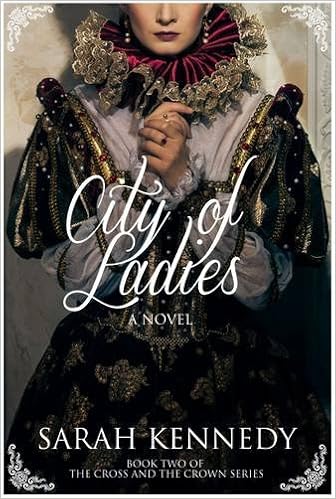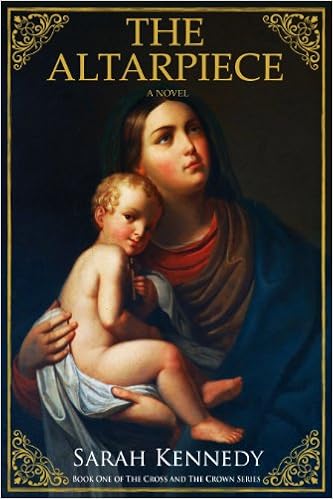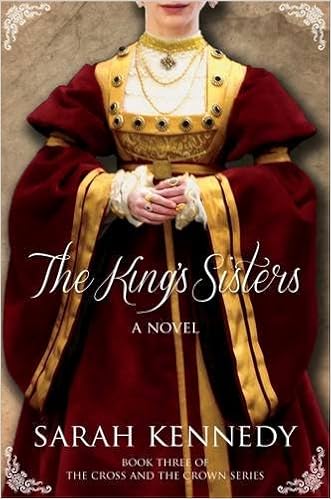Say hello to the refined and scholarly Sarah Kennedy, the author of historical fiction set in Tudor England.
_______________________
MJN: You have a PhD in
Renaissance literature. I find that there is a lot of misconception as to
what historical period that term spans. Renaissance in terms of visual arts
does not always correspond with literary Renaissance. Can you shed some light?
SK: That’s a great question—because the
answer is complicated. We roughly think
of the Renaissance as covering 1350-1660, but different regions had their “high
Renaissance” periods at different time.
The “rebirth” of interest in and knowledge of classical art, philosophy,
and literature began in Italy, but in the fifteenth century England was still
in its Medieval period. The “new”
knowledge made its way north, but England doesn’t really have a Renaissance
until the early-mid-sixteenth century, and it runs until the Restoration of the
monarchy in 1660—when continental Europe had moved far past its Renaissance, in
both the visual and the literary arts.
(England was a bit slow, I’m afraid.)
I’m not sure I’d say that England had a high Renaissance in visual art,
though they did bring in painters (particularly Holbein) from the continent for
the portraits that the royals and nobles loved to have made of themselves.
MJN: One of your reviewers commented
on your ability to create believable, well-rounded female characters as opposed
to the "flat whining court women" found in Tudor fiction. I am not
going to mention any names, but I've read enough Tudor-themed fiction to know
that many of those characters are indeed walking human hangers for period
clothes. With so much Tudor-themed fiction out there, what special efforts do
you make to ensure that your characters stand out?
SK: I’ve always had an interest in
women’s history, partly because I’ve always been interested in the everyday
nuts and bolts of how people in the past—the ones who didn’t have the benefit
of great wealth and power—lived. We
already know a lot about the court in general, and there’s a vast amount of
information and fiction about the Tudor court in particular. I love this period in history, and I’m
fascinated by the ways the Tudors managed to centralize government through the
force of their personalities and propaganda machines. But what my imagination works on is what
effect this increasingly powerful court had on the relatively individualistic
(and rather spunky) life of the average Englishman—or woman. Real people interest me more than public
characters, which are always manufactured for mass consumption. I want to create women who are intelligent
and strong—but who are also part of their cultures. I want them to be good, but not perfect; to
have emotions, but not idealized virtuous responses to events. Women have noble impulses and flaws just as
men do, and “ordinary” people are as complicated as the famous folks of
history. So I love my women characters,
even though they have to be less than loveable sometimes to be real.
MJN: How do the professor and the
storyteller in you dance in tandem when you create your fiction? I have
heard from many professors that they are afraid to write fiction for fear of it
being too dry and academic.
SK: I’ve always had just the opposite
problem—the academic in me always wants to tell stories! I actually struggled quite a lot with
developing that dry, academic style of writing, and it never really suited me. I enjoy research and can spend days looking
up arcane bits of information, and I love trudging around ruins and studying
the remains of how people lived. When it
comes to writing, however, all of that stuff becomes not so much part of an
argument but part of an imagined world.
It wasn’t really until I started writing historical poetry, and then
fiction, that my academic self-found a comfortable home inside of me.
MJN: Your novel TheAltarpiece deals with the aftermath of the creation of the Church of
England, putting the existing nuns and priests who had until then looked up to
Rome in limbo, pun intended. Most reviews seem to be constructive, but I
am sure that in real life you have gotten this reaction from your readers,
"See, I told you that religion only causes bloodshed and suffering."
It seems that some single-minded individuals make that conclusion
whenever they read about religious wars, that it's a blanket criticism of all
religion.
SK: I’m sure someone has thought that,
though no one has ever said it to my face.
I’m not sure I’d entirely disagree, though I would have to qualify that
by saying that organized religion
that’s controlled by or caught up in political
struggles for power often causes bloodshed and suffering—because religion is
used as a justification for the bloodletting.
That’s certainly part of what happened during the Reformation and
Counter-Reformation in Europe. When two
armies both think that God is on their side, you can count on some pretty
horrible outcomes. My characters see
this and experience it, but they don’t just turn away from religion. They sometimes turn away from a specific church
or leader, but they don’t jettison their belief in God or the need for religious
observance. The worst of them just
follow whoever is in power at the moment; the best of them try to understand
and practice their religious beliefs in new ways.
MJN: As head of the English
department at Mary Baldwin College, have you ever had one of your students
approach you and say "I have written a historical novel"?
SK: My time as the department head
ended last year, but I have certainly had students tell me that. I teach a fiction-writing course online most
semesters, so when I hear that I say, “OK, let’s see it.” They don’t want to show it, because it’s not
done, usually, so then I say, “Sign up for the course and let’s finish
it!” Teaching fiction is one of the best
parts of my job, because I get those students who want to push that first novel
to a complete manuscript. We have great
online workshops and go through the writing process together. That’s a course I never want to stop
teaching. I guess teaching, reading, and
writing will always go together for me.



No comments:
Post a Comment